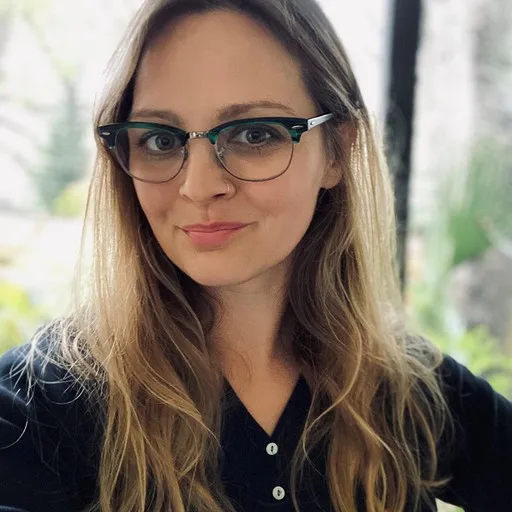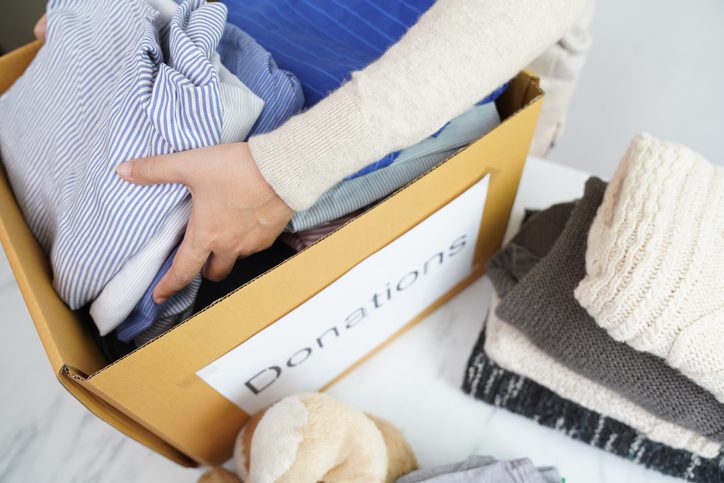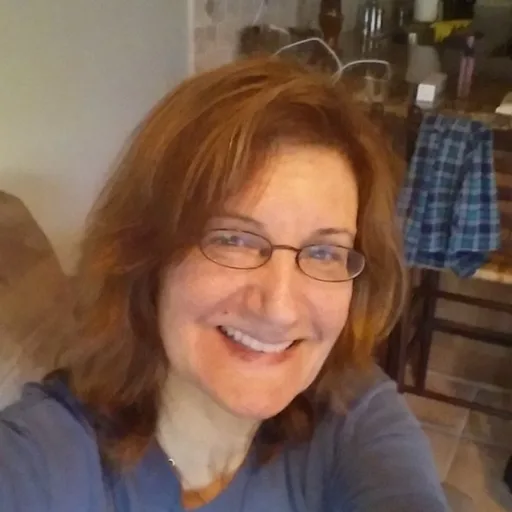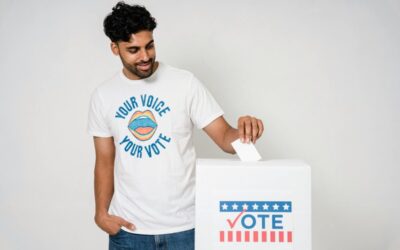
Photo via screengrab
Extreme abortion bans lead to not only negative health care outcomes, “but also deaths amongst pregnant women,” says Geeta Minocha, an advocate for reproductive rights who is fighting to help pass Florida’s Amendment 4.
Geeta Minocha, an attorney and pro-choice activist from Ocala, Florida, is a strong supporter of Amendment 4, the ballot initiative that will give voters the opportunity to enshrine abortion rights in the Florida Constitution if it passes with at least 60% of the vote in November.
As Minocha points out, the six-week abortion ban signed into law by Gov. Ron DeSantis that went into effect in May is effectively a total ban, as most women don’t know they are pregnant at that time.
During a conversation with Floricua, Minocha cited the growing number of cases of pregnant women being denied potentially life-saving health care because doctors may be afraid to treat them in violation of Florida’s restrictive ban. But the 26-year-old says she also believes that reproductive rights are a human rights issue that directly impacts every woman, no matter their race or background.
“This is an issue impacting not just health care outcomes, but also impacting human rights as we understand them,” she said.
As a Floridian, the fight to ensure every woman has the right to a safe abortion and medical care is deeply personal for her.
“I grew up in Central Florida, so these women’s issues that are specific to Florida are near and dear to my heart,” Minocha added. “I want to make sure the community that raised me is protected moving forward.”
Our interview with Minoche has been edited for brevity and clarity.
Floricua: You have said that the six-week abortion ban is ‘a misnomer’ and ‘extraordinarily dangerous.’ Why do you say that?
Minoche: The six-week ban that went into effect prevents anyone past their sixth week of pregnancy from seeking an abortion unless they fall under some sort of unique statutory exception. For example, if they are pregnant as a result of rape or incest. Now, the six-week ban is a misnomer in itself, because it actually only gives patients about two weeks, maximum, to figure out if they actually want to seek an abortion.
Can you explain what that two-week span you mention means for women?
The clock for your pregnancy starts on the day of your last period. And from that day, conception cannot even happen for two weeks. Following that, there’s a one-week period in between fertilization of the egg and implantation of the egg into the uterus. And then it takes about a week thereafter for the body to produce the special pregnancy hormone that would actually show up in any pregnancy test, and let the patient know that they are, in fact, pregnant.
This is the case for folks who have regular menstrual cycles. But if your menstrual cycles tend to be irregular, it can take even longer to diagnose a pregnancy. So, it’s extraordinarily dangerous, and it prevents people from exercising their bodily autonomy and from making the right choices for themselves.
The data is pretty clear that abortion bans like this are extraordinarily detrimental to women and do lead to not just negative health care outcomes, but quite literally deaths amongst pregnant women.
RELATED: Latinas disproportionally affected by Florida’s 6-week abortion ban
You also say it is a human rights issue.
In Ohio, for example, there was an extraordinarily gut-wrenching case of a 12-year-old girl who was raped by a family member and impregnated as a result of that rape, who was forced to cross state lines in order to seek an abortion. You cannot follow a story like that and think about abortion as anything less than a true human rights issue.
Speaking of minors, some parents are concerned that if Amendment 4 passes, underage girls will be able to access an abortion without their parents being notified. What do you say to that?
There is so much misinformation around whether Amendment 4 might impact that right for parents. And the truth is, it doesn’t touch that law at all. Amendment 4 [would] effectively eliminate that six-week ban, but it still allows for parents to be notified if their child seeks an abortion.
Some doctors have expressed concern that the six-week ban is, in effect, akin to having lawmakers in the examination room with the woman and her doctor, dictating what she can and cannot do. Do you agree with this assessment?
The fact of the matter is [lawmakers] don’t really understand how women’s bodies work, and in the event that they maybe do a little bit, they certainly haven’t been following data closely enough to make these kinds of sweeping policies.
RELATED: Florida’s biggest anti-abortion politicians are seeking reelection in November
For example, Florida’s 24-hour mandatory waiting period. This is unique to the state of Florida, in the event that someone does fall within that six-week window where they are allowed to seek an abortion, Florida law requires that patients then come in person at least twice within a 24-to-48-hour period before obtaining their procedure. But the data is pretty mixed on this in the United States and around the world as to whether mandatory waiting periods like this 24-hour rule in Florida actually reduce abortion rates at all.
So even if you are on this pro-life side, you’re advocating for policies without any sort of substance behind them. It speaks to the absurdity of a lot of these rules. With the mandatory waiting period in particular, it’s hard to see it as anything but a tool used to harass women who are trying to exercise bodily autonomy.
You have also called the six-week ban a form of “economic injustice.” What does that mean, specifically?
Yes, I also want to just quickly shine a light on the economic lens here, because this is a health care issue. This is a human rights issue, but it’s also at its core, an economic justice issue. Florida’s poverty rate is, by my last check, pretty significantly higher than the poverty rate of states across the nation. Over 2.5 million Floridians are living below the poverty line.
We know that the state’s Hispanic poverty levels in particular are extraordinarily and disproportionately high compared to the rates in the rest of the country. So, this is an issue that I think directly implicates these marginalized populations even more because we know from the data that restricting access to abortion also increases poverty.
What do you say to those who are still on the fence about Amendment 4?
For folks in Florida who are a little nervous about this: enshrining abortion access into the constitution as a provision is something that has been done and it’s continuing to be done in states around the country. The fate of so many millions of women and girls in the state of Florida depends on it. And, and so it’s a critical inflection point, but I’m excited about what the future holds.
Are you optimistic that Amendment 4 will pass in November?
I am. A lot of the polling data suggests that most Floridians are vehemently opposed to the six-week ban, at minimum. The polling data also suggests a lot of favorability towards amendment four. I’m seeing a lot of misinformation campaigns from folks on the opposite side. And that makes me think, you know what? Actually, we’re winning this fight after all.
RELATED: DeSantis administration ramps up efforts to defeat Amendment 4 as poll shows widespread support for it
Support Our Cause
Thank you for taking the time to read our work. Before you go, we hope you'll consider supporting our values-driven journalism, which has always strived to make clear what's really at stake for Floridians and our future.
Since day one, our goal here at Floricua has always been to empower people across the state with fact-based news and information. We believe that when people are armed with knowledge about what's happening in their local, state, and federal governments—including who is working on their behalf and who is actively trying to block efforts aimed at improving the daily lives of Florida families—they will be inspired to become civically engaged.


People are leaving states with abortion bans, according to study
A new analysis from the National Bureau of Economic Research found that since 2022, states with near-total abortion bans appear to have lost 36,000...

The fight for reproductive justice in Florida is ‘not over,’ say advocates
"We're going to ensure that our voices are heard," says Charo Valero of the National Latina Institute for Reproductive Justice, who spoke with...

5 places in Florida to donate clothes, shoes, and more
Decluttering your home can provide such a satisfying feeling of accomplishment. After sorting through all of your belongings and determining what...

8 Orlando hotels that pack as much fun as the theme parks
With waterslides, family arcades, playgrounds for the kids, and spas for mom and dad, these Orlando hotels will make your vacation unforgettable!...




